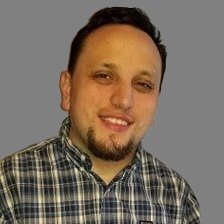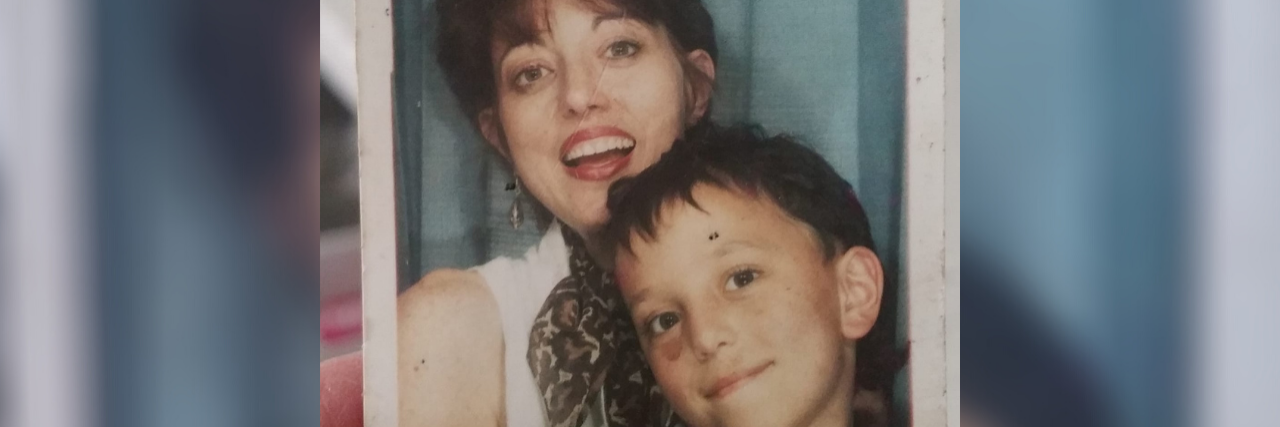Many years ago, when a doctor confirmed that my son is autistic, there was little I knew for sure. But I was certain of this: Daniel was the same child he was before the identification. He was smart as a whip, gentle, patient, kind, and already, as a small child, a thoughtful and attentive listener. Oh — and he was a ham from the get-go, developing a love affair with the microphone at age 2 that seeded his public speaking career.
For me, the name — it was Asperger’s at the time, now ASD level 1 — held hope of new ideas for helping him with the things he found difficult and begged for help with: social understanding, anxiety, sleep difficulties, executive functioning, sensory and motor challenges among these. I’d stumbled onto many things that helped, but these were rarely things shared with us by professionals. We were on our own to figure out how to help this wonderful little human being. We did it together, with me as the adult leading. As Yoda would say, “Always two there are…no more, no less.”
I learned really quickly that there was little to no useful help out there — mostly because there was little to no understanding of autistics who were average intelligence or higher and could communicate with spoken language. In other words, if you can talk and can do the school work, they couldn’t care less about any “apparent” challenges. The needs just were not recognized, supported, believed, or respected by our systems of supports.
No worries. As an autistic mother, I knew what I had to do, and I did it fully: I became a lay expert so I could help my kid. It became my mission. This is a common autistic trait, being able to do deep dives into areas of high interest, and there was nothing more compelling to me than helping Daniel feel calm, happy, safe, comfortable, valued and competent.
Ultimately, I learned enough to be hired as an autism consultant with a large non-profit autism agency, write workshops, advocate, advise our education minister on special education, publish articles…yadda yadda…long story short: together, Daniel and I figured out what he needed and set about finding ways to get those needs met. Thanks to a handful of educators who were ahead of their time, our ideas were often greeted with curiosity and openness.
I’m going to skip the 20 years from then until now, but will just say this. To those who thought he should never go to university, that he could never live alone, that the substantial amount of support he required through high school meant he would never be able to succeed, that the level of life skill support was unnecessary and unhealthy, that he should be in a self-contained special education class and not integrated with typical students: F you.
My kid is the bomb.
He has an honors degree in communications, an honors degree in social work, a post-grad in Children’s Media and a certificate from Wilfred Laurier University in Positive Psychology.
Was it easy for him? It was not. The speed and the volume of the curriculum, and social and sensory demands presented a challenge. He embraced the accommodations he required in university, including things like note-takers, double time for exams, one exam per day maximum, clarification of exam questions, and having his therapy cat live with him in residence. It makes sense to continue with accommodations in post-secondary, right? If we are autistic learners, this does not change because we got older or because we have completed high school. Daniel needed what he needed to keep up with demands that were fashioned for typical learners.
Through the years, though, anxiety has been the real beast. Autism is not a mental health diagnosis, but a lifetime of being misunderstood, feeling out of sync, being corrected at every turn, and having sensory differences ignored or poorly supported took its toll.
When anxiety dominated, it was hard for Daniel to cope — and he was almost always very anxious. Anxiety hijacks the prefrontal cortex known as our thinking brain — and with it our executive functioning skills that allow us to organize, remember, plan, prioritize, manage emotions, manage time, and be flexible in our thinking — they can go bye-bye! This is what happened to Daniel.
So you know what? We kept at it. I kept helping him by being there for his texts and calls, and saying what I hoped would redirect his freight train of negative self-talk from drowning out rational thought. I would help him to identify a next step, and then call me when that step was done.
We kept looking for ways to tamp down the anxiety, and suggesting he take a mindfulness course was the start of a sea change. Finally, a portable, cost-free way for him to quell the unpleasant body sensations of anxiety. We have also continued, over the years, to find ways to accommodate and teach executive functioning skills that continue to challenge him. He continued to learn how to prioritize a to-do list, how to ask for help, how to say no if he had too much on his plate, and how, when, and if he would share his autism identification.
He has spent the past 16 years teaching others about autism, and in doing so, has learned much about himself.
Daniel is still the same child he was when we learned that autism helped to explain his unique way of learning, interacting with others, and experiencing the sensory world. The difference is that today, this smart, funny, patient, thoughtful listener is now a social worker, a published author, an accomplished public speaker, an autism advocate, a registered professional and an incredibly supportive son.
In this year, maybe more than all the others, I am reminded of how blessed I am to have him in my life. In one of the most difficult years I have ever experienced (unrelated to COVID), he has flipped the script, helping me often to douse anxiety, figure out what I need to do next to get through the day, guide me toward greater goals, and help me when I cannot do it for myself.
The young Padawan caught up with his mother. I could not be prouder or more grateful to have him in my life. Happy Birthday, Daniel!


